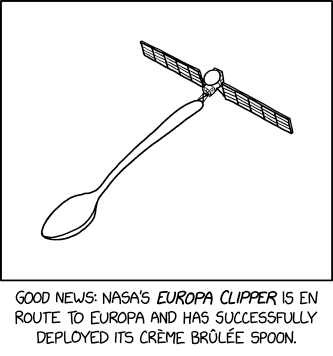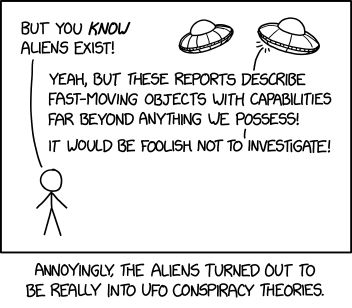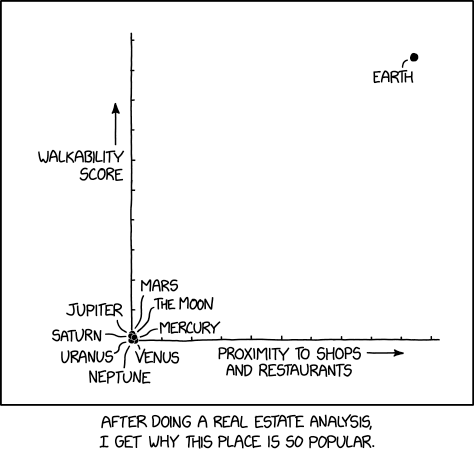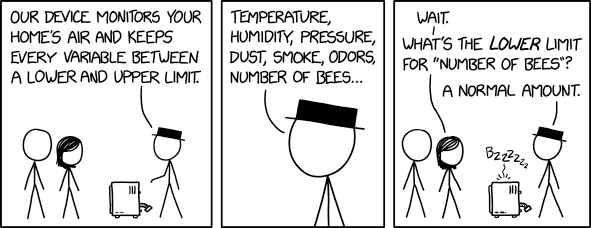NVIDIA DLSS For Blender Under Review But Licensing Concerns Persist
A few months ago at SIGGRAPH was a demo of Blender with NVIDIA Deep Learning Super Sampling (DLSS) integration. The pull request is now open for landing NVIDIA DLSS support into Blender for better quality upscaling/denoising and performance but concerns persist over the licensing due to NVIDIA DLSS binaries… ⌘ Read more
A Century of Hair Samples Proves Leaded Gas Ban Worked
Scientists at the University of Utah have analyzed nearly a century’s worth of human hair samples and found that lead concentrations dropped 100-fold after the EPA began cracking down on leaded gasoline and other lead-based products in the 1970s.
The findings, published in the Proceedings of the National Academy of Sciences, drew on hair collected from Utah resi … ⌘ Read more
Anthropic’s Index Shows Job Evolution Over Replacement
Anthropic’s fourth installment of its Economic Index, drawing on an anonymized sample of two million Claude conversations from November 2025, finds that AI is changing how people work rather than whether they work at all. The study tracked usage across the company’s consumer-facing Claude.ai platform and its API, categorizing interactions as either automation (where AI co … ⌘ Read more
NASA Will Soon Find Out If the Perseverance Rover Can Really Persevere On Mars
With NASA’s Mars Sample Return mission delayed into the 2030s, engineers are certifying the Perseverance rover to keep operating for many more years while it continues collecting and safeguarding Martian rock samples. Ars Technica reports: The good news is that the robot, about the size of a small SUV, is in excelle … ⌘ Read more
Cold Case Inquiries Stall After Ancestry.com Revisits Policy For Users
An anonymous reader quotes a report from the New York Times: Since online genealogy services began operating, millions of people have sent them saliva samples in hopes of learning about their family roots and discovering far-flung relatives. These services also appeal to law enforcement authorities, who have used them to solve cold c … ⌘ Read more
Sugars, ‘Gum,’ Stardust Found In NASA’s Asteroid Bennu Samples
NASA’s OSIRIS-REx samples from asteroid Bennu have revealed bio-essential sugars, a never-before-seen “space gum” polymer, and unusually high levels of supernova-origin dust. The findings bolster the RNA-world hypothesis, suggest complex organics formed early on Bennu’s parent body, and show preserved presolar grains that escaped alteration for billion … ⌘ Read more
Asteroid Bennu carries all the ingredients for life as we know it
We knew from prior analyses that a distant asteroid sampled in 2020 carried all but one of the molecules needed to kick-start life, and researchers have just found the missing ingredient: sugar ⌘ Read more
The Mysterious Black Fungus From Chernobyl That May Eat Radiation
Black fungus found growing inside Chernobyl’s destroyed reactor may be feeding on radiation, and researchers have tested samples of the same species aboard the International Space Station to explore whether it could eventually shield astronauts from cosmic rays. Ukrainian scientist Nelli Zhdanova first discovered the melanin-rich mould colonizi … ⌘ Read more
DNA samples found near Toyah Cordingley burial site scrutinised
The former nurse accused of the 2018 murder of Toyah Cordingley was 3.7 billion times more likely than not to have contributed to a DNA sample found on a stick where she was buried, his trial has heard. ⌘ Read more
Oldest ever RNA sample recovered from woolly mammoth
RNA from an exceptionally well preserved woolly mammoth gives us a window on gene activity in an animal that died nearly 40,000 years ago ⌘ Read more
SLogic16U3 USB3 Logic Analyzer Combines Compact Design with 3.2 Gbps Bandwidth
The SLogic16U3 is a next-generation USB3 logic analyzer designed for engineers and hobbyists seeking high-speed signal analysis in a small form factor. Measuring just 40 × 40 × 10 mm, it provides sampling rates of 800 M @ 4 channels, 400 M @ 8 channels, and 200 M @ 16 channels over a USB 3.0 […] ⌘ Read more
A small number of samples can poison LLMs of any size
Article URL: https://www.anthropic.com/research/small-samples-poison
Comments URL: https://news.ycombinator.com/item?id=45529587
Points: 504
# Comments: 156 ⌘ Read more
From Shell Scripts to Science Agents: How AI Agents Are Transforming Research Workflows
It’s 2 AM in a lab somewhere. A researcher has three terminals open, a half-written Jupyter notebook on one screen, an Excel sheet filled with sample IDs on another, and a half-eaten snack next to shell commands. They’re juggling scripts to run a protein folding model, parsing CSVs from the last experiment, searching for literature,… ⌘ Read more
you know i can never get into boy groups but i have liked EXO’s obsession since it came out. that “i want you” sample is just too good man https://www.youtube.com/watch?v=uxmP4b2a0uY
i love pinkpantheress so much she’s so cute and fun and tapped into every aesthetic and dance music sound i love. if you like house and garage and D&B music, check her out!!!! she absolutely knows her shit too btw she’s sampled basement jaxx and adam F
https://www.youtube.com/watch?v=Xo_lPnBlfto
https://www.youtube.com/watch?v=TFWXqLSr4ZM
I’m playing with ratterplatter again: It’s a toy that watches disk I/O and emulates the noise of a real hard disk. (Linux only.) It uses sound samples from one of my older disks.
I tried a different approach at estimating the disk activity and I think I finally got it right (after almost 10 years … 🤦).
Demo, booting a Windows 2000 VM: https://movq.de/v/1400544cc6/2kboot-ratterplatter-2.mp4
(For this purpose alone, I put a couple of mini speakers into my PC case, so that the noise comes from the right place: https://movq.de/v/a3b2dc0932/speakers.jpg)
The results aren’t too bad, but this thing can’t be super accurate due to the huge I/O caches that we have these days. For the video, I dropped the caches before booting Windows, otherwise you would have heard almost nothing.
FWIW, if you don’t know it yet, this is the equivalent for proper keyboard sound: https://github.com/zevv/bucklespring
Chapter 1:
Chapter 2:
if you want a different voice let me know which to use: https://rhasspy.github.io/piper-samples/
Haasoscope Pro Open Source USB Oscilloscope with 2 GHz Bandwidth and 3.2 GS/s Sampling
Crowd Supply recently launched Haasoscope Pro, an upgraded version of the original open-source USB oscilloscope introduced in 2018. It features a 2 GHz bandwidth, 12-bit resolution, and a 3.2 GS/s sampling rate, providing an open-hardware solution for high-speed signal analysis. According to the product page, oscilloscopes with bandwidths above 1 GHz are typically designe … ⌘ Read more
woodser releases monero-cpp v0.8.13, monero-java v0.8.36, monero-ts v0.11.3
woodser1 has just released new versions for three Monero libraries: monero-cpp v0.8.132, monero-java v0.8.363, and monero-ts v0.11.34:
monero-cpp:
-Support wallet->get_default_fee_priority()
-Fix building sample_code.cpp on Linux
-Update instructions to use unbound v1.22.0
-Update instructions to use boost v1.85.0
-Update build ... ⌘ [Read more](https://monero.observer/woodser-releases-monero-cpp-v0.8.13-monero-java-v0.8.36-monero-ts-v0.11.3/)How to refactor code with GitHub Copilot
Discover how to use GitHub Copilot to refactor your code and see samples of it in action.
The post How to refactor code with GitHub Copilot appeared first on The GitHub Blog. ⌘ Read more
Atomic Echo Base Enables Voice Recognition for M5 Atom Series
The Atomic Echo Base is a voice recognition module designed for compatibility with the M5 Atom series. It combines the ES8311 audio decoder, a MEMS microphone, and a NS4150B power amplifier to support audio processing in interactive applications. The ES8311 audio codec, which supports 24-bit resolution and sample rates from 16KHz to 64KHz via I2S […] ⌘ Read more
[AFH] [~0.25 XMR/hr] Experienced video editor available to work for Monero
I use Davinci Resolve. Samples provided upon request. Price is per hour, but will discuss project based pricing.
Link: https://xmrbazaar.com/listing/J26C/
strandead (XMRBazaar) ⌘ Read more
Europa Clipper
 ⌘ Read more
⌘ Read more
XMRig v6.22.1 released with bug fixes, tweaks
XMRig 1 version 6.22.12 has been released with several bug fixes and improvements.
#3531 Always reset nonce on RandomX dataset change.
#3534 Fixed threads auto-config on Zen5.
#3535 RandomX: tweaks for Zen5.
#3539 Added Zen5 to randomx_boost.sh.
#3540 Detect AMD engineering samples in randomx_boost.sh.
Verify the SHA256 sums with xmrig3’s GPG key4 (ID: 446A53638BE94409) before using the software.
Consult … ⌘ Read more
Alien Theories
 ⌘ Read more
⌘ Read more
https://nuage03.apps.education.fr/index.php/s/gnBztkZ45L7L6aW free sounds, samples categorized by genres
Prompting GitHub Copilot Chat to become your personal AI assistant for accessibility
GitHub Copilot Chat can help you learn about accessibility and improve the accessibility of your code. In this blog, we share a sample foundational prompt that instructs GitHub Copilot Chat to become your personal AI assistant for accessibility.
The post [Prompting GitHub Copilot Chat to become your personal AI assistant for accessibility](https://github.blog/2023-10- … ⌘ Read more
Real Estate Analysis
 ⌘ Read more
⌘ Read more
💻 Issue 368 - Scala 3 Significant Indentation Woes: Sample ⌘ Read more
QOA Benchmark Results and File Format Specification
The specification for the Quite OK Audio Format,
announced in a previous blog post,
is now finalized. QOA is a lossy audio compression format. Typical audio
signals (44100hz, stereo) are encoded into 278 kbits/s, or more precisely 3.2
bits per sample – exactly 1/5 of the bits needed for an uncompressed WAV.
The QOA-Specification [fits on a single … ⌘ Read more
Air Handler
 ⌘ Read more
⌘ Read more
Time Domain Audio Compression at 3.2 bits per Sample
Audio formats typically fall into one of three categories: “lossless”,
“complicated” or “bad”. After developing a
simple image format
last year, I tried to come up with an audio format that fits neither of these
categories.
In other words: a format that is lossy, simple and quite ok.
Naturally, it’s called QOA — the Quite OK Audio Format.
 ⌘ Read more
⌘ Read more
Polio back in UK after virus detected in London sewage samples
Health officials in Britain warned parents to ensure their children have been vaccinated against polio after the virus that causes the disease was found in London sewage samples. ⌘ Read more
China’s Mars mission on track to lead the world in retrieving Martian rocks by 2031, says programme veteran
China’s timeline is two years ahead of a US-European planned Mars mission to return samples to Earth for laboratory testing, according to Sun Zezhou. ⌘ Read more
Selection Bias
 ⌘ Read more
⌘ Read more
introducing: the !trikuf. code samples included. #halfbakedideas
@adi@twtxt.net “I usually seen the opposite. Women are more interested in longevity and happy that studies show that they live more than men.” -> I probably could have been clearer: It seems to me that women are on average much less interested in life-extension (methods beyond usual health advice such as the old “exercise, eat vegetables”) than men. This might just be founder/sampling bias (life extension comes out of the relatively male dominated libertarian/techno-optimist cluster). Actually, maybe there’s just a variance thing here: median man cares less about his longevity than the median woman, but the variance for men is higher.
rounded rectangle recipe in #cairo [[https://www.cairographics.org/samples/rounded_rectangle/]] #links #vector #graphics
Just copied over more samples today from my sample collection from one drive to another. Things are in more than one place for the first time in a long time, maybe ever in some cases? Feels nice.
I’ve already implemented like 4 new features today just out of necessity with my !sample_curation project.
to start my sample !zettelkasten, I imported some waveform collections I had nearby: AKWF, Architecture Waveforms 2010, and WaveEdit #samples #curation #zet
a collection of high-res wavetables with a !CC0 license: [[https://waveeditonline.com/]] #links #samples
implemented initial crate import in !weewiki. one step closer towards !sample_curation
I’ve recently been reading up on zettelkastens again, since it is very closely related to the ethos of a personal wiki system like !weewiki. The thing that interests me is the emergent patterns that come from linking things to things. Which is exactly the sort of solution I’m looking for !sample_curation. #halfbakedideas